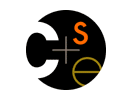
|

CSE 410 Sp 08 - Computer Systems |
|
 CSE Home CSE Home |
 About Us About Us |
 Search Search |
 Contact Info Contact Info |
|
CSE 410 - Computer Systems Syllabus
Course Goals Detailed understanding of
The idea of this course is to teach you how computers really work, from the chip level up to the user application. The major goal is that when we finish, you will understand what is actually happening when a computer system is running a set of application programs, and so will be able to make good design choices in the future as a developer, project manager, or system customer. Instructor Rob Nash, rynn@cs.washington.edu or rundaemon@gmail.com TAs Tayfun Elmas (telmas@cs.washington.edu) Fabian Kidarsa (fkidarsa@cs.washington.edu) Prerequisites CSE 373 (data structures and algorithms) Catalog and Time Schedule UW Catalog entry and the class meets MWF from 2:30-3:20 pm in MEB 238. Course Format The class meets three times a week for lectures. On your own time, you will have homework to do, including computer programs to design and debug. You will be working on homework more or less all the time, with frequent, inflexible deadlines. You will need to use the Internet to get and turn in assignments and to keep in touch with the course. Textbooks There are two textbooks for the course. The first book is Computer Organization and Design: The Hardware/Software Interface, Third Edition, by Patterson and Hennessy. The second book, which you won't need for the first few weeks of the course, is Operating System Concepts, 7th Edition, by Silberschatz and Galvin. Students can try to complete this course with older editions of the texts above; however, homework problems are assigned from the newest edition. ExamsThere will be a midterm and a final exam (analogous to a second midterm).
GradesGrades will be assigned roughly as follows:
Scores for all assignments and tests will be combined to produce a single score from 0-100%. The final grade will be computed from this score using basically a linear conversion. Assuming no major disasters (which could happen if a test is way too difficult, but not if it is too easy), your final grade will be at least as follows based on your score: 90% or better: at least 3.5, 70% or better: at least 2.5. Grades are likely to be more generous than this but they will not be worse. In other words, you are not particularly in competition with others for your grade: do a good job and you'll get a good final grade. Policies
|
||||||||||||||||||||||||||||||||||
|
Computer Science & Engineering University of Washington Box 352350 Seattle, WA 98195-2350 (206) 543-1695 voice, (206) 543-2969 FAX [comments to webmaster] | |